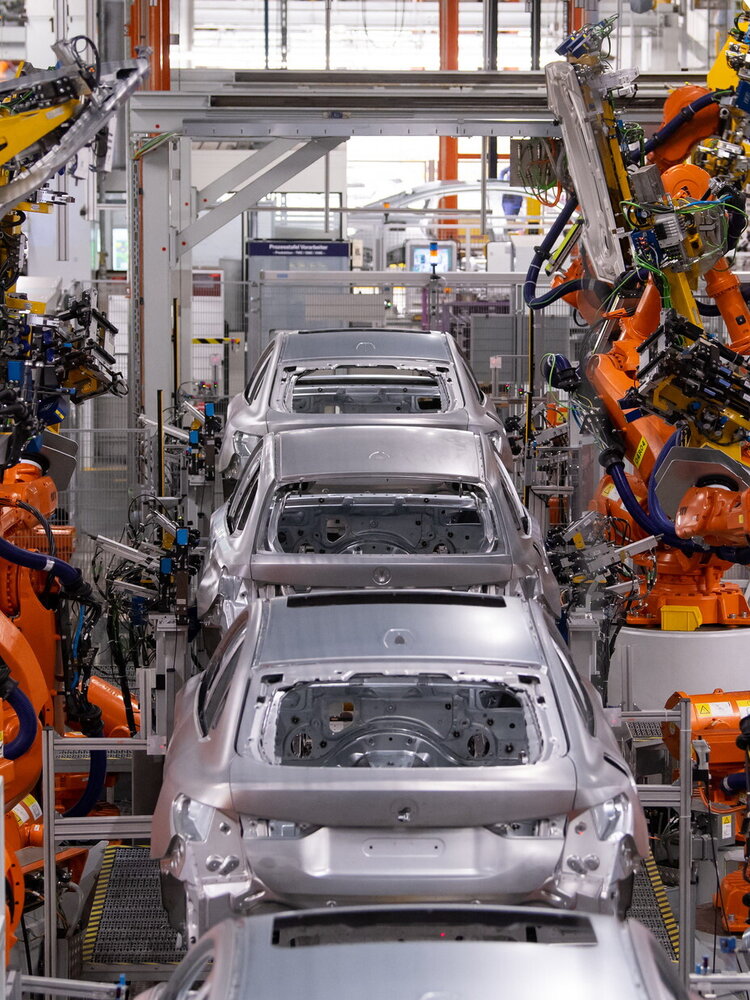The transition does not fuel and the European car market marks a sharp slowdown. The automotive situation that keeps European governments sleepless could be summarized like this: from the competition with China on electric cars, to the crisis of the big European brands which are experiencing collapses in sales. Volkswagen in recent days, after cutting its estimates for 2024, announced the closure of three plants in Germany and an Audi plant in Belgium.
In Italy, a. appeared in the budget law 4.6 billion cut to transition incentives. A measure that has alarmed the National Automotive Industry Supply Chain Association (Anfia), which considers it “impossible to support companies without the resources” and adds “in the coming months, if companies in difficulty are not supported, a bomb risks exploding social”.
The association, which learned of the cuts by reading the tables, and without interlocution with the ministry, complains that “the choice falls at a time of particular difficulty for the sector starting from the crisis in Germany, the decline in the market throughout Europe, but in Italy even stronger, until the transition which is not going in the desired direction”. Meanwhile, Europe is trying to defend itself as best it can. Yesterday the Commission launched a package of duties on brands that export electric vehicles from China: 17% for the GroupByd; 18.8% for the Gruppo Geely; 35.3% for the Saic Group; 7.8% perTesla;20.7% for other companies that collaborated in the EU investigation and, finally, 35.3% for all other companies.
The China Chamber of Commerce has called for an end to the measures it considers “protectionist” and “we deeply regret and are dissatisfied with the politically motivated decision.”
The numbers
The EU’s decision seems to be supported by the numbers released by Eurostat according to which in 2023, almost 43% of the total number of cars imported into the European Union are electric or hybrid vehicles, a significant increase compared to the share observed in 2017, at 8%. In value terms, in 2023 the EU spent 44.6 billion euros on imports from non-EU countries for hybrid and electric cars, an increase of 21% compared to 2022 (36.9 billion). The first three non-EU countries from which the EU imported electric cars were China, with 9.7 billion euros (48% of the total import of electric cars), South Korea (4.3 billion euro, 21%) and the United Kingdom (2.1 billion euro, 10%).
The Budapest summit
But it’s not enough. At the next Budapest summit to be held on November 8, the European leaders will include in the final document a passage on the car market in Europe where they will express the need to “pay particular attention to traditional industries in transition, including those with high energy intensity and the automotive industry”. In view of the appointment, Von der Leyen has had a series of talks in recent days with the CEOs of BMW, Mercedes-Benz, and with the Elkanns.
The president of Stellantis also made it known that he will not participate in the hearing of the Productive Activities commission of the Chamber of Deputies, because there would be no “news” compared to what was reported by the CEO Carlo Tavares last October 11th. The scenario for the car is complex and does not seem capable of sustaining the transition hoped for by 2035. European producers are lagging behind and are faced with higher energy prices, the lack of attractiveness of electric vehicles among the public, also due to a difficulty linked to purchasing power. In this context, incentives appear to be the only tool to stimulate demand and counter the Chinese market which risks invading our streets.
Despite the suffering of the sector, the Commission seems to want to continue with the objectives of the European Green Deal, starting from the 2035 stop for combustion engine cars.
But there is a date on which Germany and Italy are trying to align: that is il 2026 when the plan requires a check and a revision of the regulation on cutting emissions. Some states would like the deadline to be brought forward to 2025, in order to avoid fines for European producers that could run into billions. To avoid sanctions, many car manufacturers could stop producing diesel and petrol vehicles, with significant repercussions on employment.
